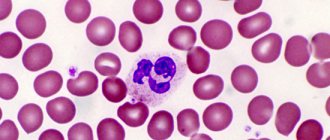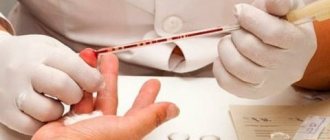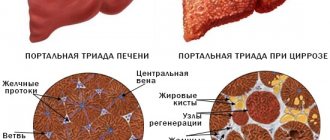false positive test for HIV, pixabay.com World statistics include more than 38 million people with HIV infection. No matter how scary these numbers sound, every year the disease is treatable. Means of protection, prevention, and special medications ensure a happy and long life for the HIV-infected population. The disease is most prevalent in countries with an average and low standard of living. The HIV rating includes the states of Central Asia, Eastern Europe, Africa, and the Middle East.
Some people, upon learning that they are infected with HIV, commit suicide. There are cases when a person still does not know for sure whether he is sick or not, but is already condemning himself to death.
But everyone should know: there is only one life and you can and should fight everything.
Often, even the best devices, clinics and specialists can make errors. Therefore, there is a possibility of an HIV test error.
If you are planning to take tests together with your sexual partner, then you need to know the information specified in the article. Today we will answer the following questions:
- What affects HIV tests? How to prepare for the test?
- Statistics of false positive tests for HIV.
- False HIV test causes.
- HIV positive, what does this mean?
- False HIV test, who is to blame?
Support the publication
- Join the CLAN
Or
Doctors believe that the key groups of HIV patients include:
“Gays, trans people, drug addicts, prison inmates. People working in the sex industry. As a rule, they do not maintain hygiene at all. And what kind of hygiene can we talk about if the brain solves only the need for attraction? The HIV epidemic affects women and adolescents in African countries. Because the level of powers does not allow for proper treatment. The number of people dying from HIV is growing.
Do not forget that this terrible disease primarily affects a strong decline in immunity. Unfortunately, there are no medications that will quickly get rid of the problem. But modern ARV drugs are able to control the level of infection in the body. Hold him back and not let him progress. Also, protect the surrounding society from infection. Be vigilant and attentive when choosing a sexual partner. It’s better to go through a joint study to be sure of each other’s health.”
Can HIV tests be faulty?
To prevent a false HIV test, you need to properly prepare for the test. Often the results can shock the patient, for no apparent reason, and show that he is HIV-infected. This error is called a false positive analysis. There are 2 methods of testing for HIV. Each has its own statistics of erroneous results.
- Immunochromatographic - strip test. The margin of error or error is 5%.
- ELISA – 0.8-0.9%.
Of course, the percentage of this being a miss is low. Nevertheless, this happens. Doctors recommend following several rules to definitely protect yourself from unnecessary worries and depression.
- The first procedure is donating venous blood. They will clean the area where the blood will be drawn from, insert a pipette syringe, and remove the required amount of blood. Blood can be taken from both the cubital fossa and the forearm. Not many people know that you should absolutely not eat before taking blood. Why? – trace elements of food are absorbed into the small intestine. This changes the composition of the blood. It is also worth giving up fatty foods in the evening if you are going to be tested in the morning. Fats make the blood cloudier and chylosis occurs. The level of hormones also changes, which greatly affects the result. Try not to eat 8-14 hours before the procedure, but you can drink as usual. After passing, treat yourself to some chocolate.
- Forget about cigarettes 8 hours before the test. Nicotine lowers the stress hormone and the amount of essential substances. Alcohol should be left on the shelf 3 days before the tests. It slows down your metabolism and will negatively affect your results.
- A false positive reaction to HIV can occur due to viral diseases: ARVI, influenza. Antibody synthesis occurs in the body. It is antibodies in the fight against the virus that can be recognized as bacteria against HIV infection. Do not take the test if you are sick or sick. After illness, you can donate blood for HIV within 1 week.
- There will be moral fear. When the question concerns a serious illness, we become scared. People put off seeing a doctor and risk their lives even more. Therefore, if you have suspicions that the infection is in the body, forget about everything and get tested urgently. If there are no reasons to worry, then calmly, for the sake of confidence, undergo an examination.
If there was a risk of HIV infection, when can you get a test?
The enzyme-linked immunosorbent assay (ELISA), which is used to diagnose HIV, can only show results several weeks after infection. This type of analysis determines not the virus itself, but antibodies to it. In some people, antibodies are present in sufficient quantities in the blood after 2 weeks. However, for most people it takes longer for antibodies to form (seroconversion). For the test result to be sufficiently reliable, it is necessary that about 3 months have passed since the risky situation. After 3 months, the ELISA test is reliable in 95-98% of people, that is, in the vast majority. Sometimes the formation of antibodies takes longer - from 3 to 6 months.
Statistics, HIV ELISA results
Everyone reacts differently to HIV. Sometimes, people may not know about a serious illness for years, and then it dramatically affects the immune system.
Disappointing statistics increasingly frighten the healthy part of the world population, as they grow every year.
- The WHO African region has 25.7 million citizens living with HIV. This is 2/3 of all sick people infected.
- Assessing the statistics of 2021: only 79% of people knew about the disease. 62% received treatment and antiviral therapy. In 53%, the virus was weakened and the risk of infecting other people was avoided.
- As of 2021, 24.5 million people were using antiviral therapy.
- From 2000 to 2021, HIV deaths have decreased by 45%. However, ART has saved 13.6 million citizens of various countries.
- A false positive result for HIV occurs in 5% of cases if it is a strip test. If it is an ELISA, then the percentage is reduced to 1.
Why go to the testing room?
People decide to get tested for HIV for a variety of reasons:
- Knowing your HIV-positive status can help people get timely medical care that can prevent serious and life-threatening illnesses. For example, if you have HIV infection, some infections, such as syphilis, must be treated differently. Also, if you have HIV, it is very important to monitor your immune status and other indicators, which allows you to prescribe the necessary antiviral treatment in a timely manner and prevent the development of AIDS.
- Knowing that one is not infected can help a person decide how to make their behavior as safe as possible in relation to HIV. It may also be important for a person to know that he has HIV because he is concerned about the safety of his sexual partner.
- Diagnosing HIV infection helps prevent HIV transmission to the child during pregnancy.
- For some people, knowing their HIV status, even positive, may be less scary than constant worry and obsessive thoughts about possible infection. In any case, taking the test allows you to put an end to the painful uncertainty and make decisions about your future life based on knowledge about your health.
Incorrect HIV result, reasons
Modern medicine is improving every year and does not allow errors to occur. But for a number of different reasons, mistakes do happen, which can be very frightening and then very pleasing to patients. Test results depend on:
- A person taking an HIV test.
- From the work of the laboratory and the experience of doctors.
- From hardware technology.
Sometimes technical errors are to blame for the appearance of gray hair. Inexperienced nurses and clinic workers may not comply with the storage and transportation of blood taken for analysis. But this happens less and less often
A false positive test in women may occur due to pregnancy. If a pregnant woman’s test shows a positive status, she needs to register with the AIDS clinic. There they will conduct an examination and re-test. 3 months after the first blood donation, the second one is carried out. If the antibody levels increase, then it is HIV. What remains the same is the consequences of pregnancy, and there is nothing to be afraid of.
Diabetes mellitus and collagenosis are also causes of incorrect indicators. The correctness of the results will be affected by the presence of oncology or autoimmune diseases.
False HIV results also occur in children. Women who have the infection can give birth to a healthy baby. BUT. For the first 18 months, there will be an increased level of antibodies in his blood. If the indicators continue to decline, there is no HIV.
Several other factors may influence the causes of a false-positive HIV test:
- Stress, overwork.
- Poor nutrition, and as a consequence – hormonal imbalance.
- Heavy physical activity causes the synthesis of stress hormones. Before the study, you should refrain from sports.
How reliable is a positive test result?
Sometimes ELISA has false positive results (in about 1% of cases), the cause of such a result may be pregnancy, various viral infections, or simple accident. After receiving a positive result, a more accurate test is needed - an immunoblot, based on the results of which a diagnosis is made. A positive immunoblot result after a positive ELISA is 99.9% reliable - this is the maximum accuracy for any medical test. If the immunoblot is negative, it means that the first test was false positive, and in fact the person does not have HIV.
Can an HIV test be false positive and when should it be taken?
A person has the right to get tested and remain an anonymous patient at any time. But a very small percentage of people treat their health with such caution. Most often, we run to get treatment when we are already sick. But there are a number of situations that require you to undergo testing to ensure confidence and timely treatment.
- Donate blood before your planned pregnancy.
- Before any surgery.
- After skin punctures or questionable, unsterile injections.
- After sexual contact with an unfamiliar man/woman.
- If you feel much worse than usual, but cannot find any obvious reason.
Moreover, all clinics in all countries conduct the analysis completely free of charge. Doctors and medical institutions welcome responsible young people.
Also, you have the right to expect complete confidentiality. You may not give your name, or just give your first name. In the first case, you will be given a serial number. The test results will be given only to you. Disclosure of analysis results is considered a violation of medical confidentiality. It is strictly punishable by dismissal and complete exclusion from medical work. Therefore, anonymity is definitely guaranteed.
We recommend getting checked twice a year. Pay attention to your general physical and psychological condition. Be responsible for your health, use contraceptive methods. Be healthy and happy!
Add AN to your sources so as not to miss important events - Yandex News

- “PolitRussia”: a NATO pilot “disgraced himself” over the Baltic after “mocking” a Russian plane
- Nodules in the thyroid gland: why they are dangerous and how they are treated
- Sohu: a clash between Russian paratroopers and the US 101st Division could lead to problems for the Americans
- Head of the DPR Pushilin: the military conflict in Donbass is “coming to its logical conclusion”
- Professor Igor Gundarov: Rosstat has classified mortality statistics from pneumonia
- When does an HIV test give a false result?
- Alexander Saversky: “Covid is not a plague”
Become a member of the CLAN and every Tuesday you will receive the latest issue of “Arguments of the Week” with a discount of more than 70%, along with exclusive materials not included in the newspaper. Get premium access to a library of the most interesting and popular books, as well as an archive of more than 700 published issues for FREE. In addition, you will have the opportunity to benefit from free legal advice from our experts for a whole year.
- Enter your email address, then select any convenient payment method for your annual subscription
- Scan the QR. In the Sberbank Online application that opens, enter the annual subscription cost (490 rubles). Then send the confirmation code by email
Or

What is an indeterminate result?
If ELISA is positive or negative, then immunoblot can be positive, negative or indeterminate. Indeterminate immunoblot result, i.e. the presence of at least one protein to the virus in the immunoblot can be observed if the infection occurred recently and there are still few antibodies to HIV in the blood, in which case the immunoblot will become positive after some time. Also, an uncertain result may appear in the absence of HIV infection with hepatitis, some chronic metabolic diseases, or during pregnancy. In this case, either the immunoblot will become negative or the cause of the indeterminate result will be found.
Is there a test that can be done sooner?
Diagnosis of HIV infection is made only using tests that detect antibodies. In addition, there is a polymerase chain reaction (PCR) test that determines the genetic material of the virus itself, so it is quite reliable 10 days after possible infection. Sometimes people do a PCR test because it is difficult for them to wait 3 months, in other cases it may be prescribed by a doctor, for example, it is given to children born to HIV-positive mothers. However, despite the high sensitivity and reliability, cases of false-positive and false-negative PCR results have been reported. For this reason, even if PCR was done, confirmatory testing using ELISA may be necessary.
What should I do if the test result is negative but I still have symptoms?
First of all, see your doctor about all your symptoms. They can be caused by anything other than HIV infection. The only reliable way to diagnose HIV is testing. Even an experienced doctor cannot determine HIV infection by symptoms. If enough time has passed and the repeat test result is negative, then you do not have HIV, regardless of the presence or absence of symptoms. However, such experiences may be a symptom of AIDS phobia, in which case you should pay more attention to your psychological health.











